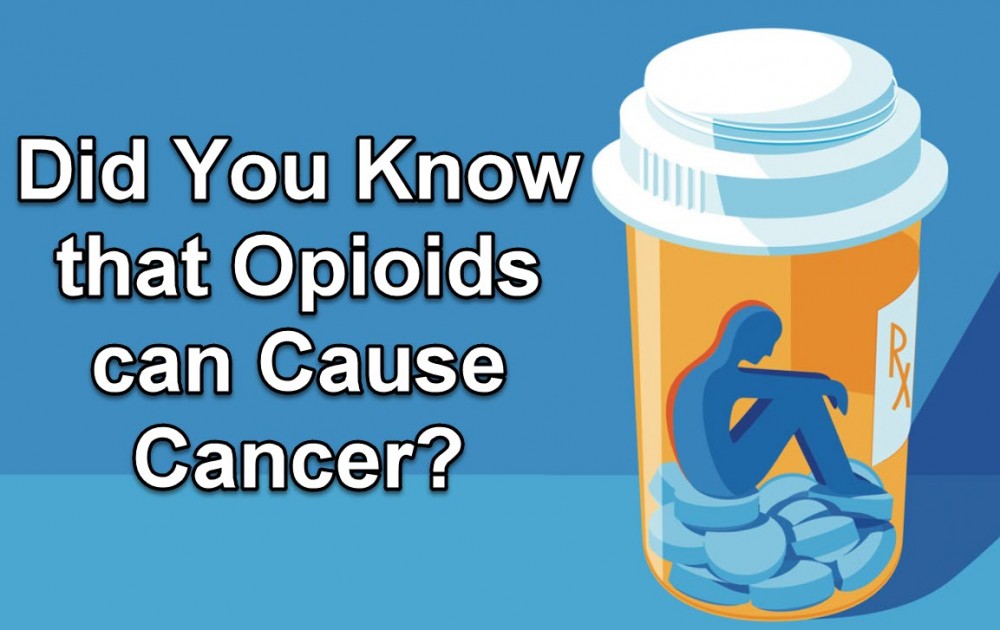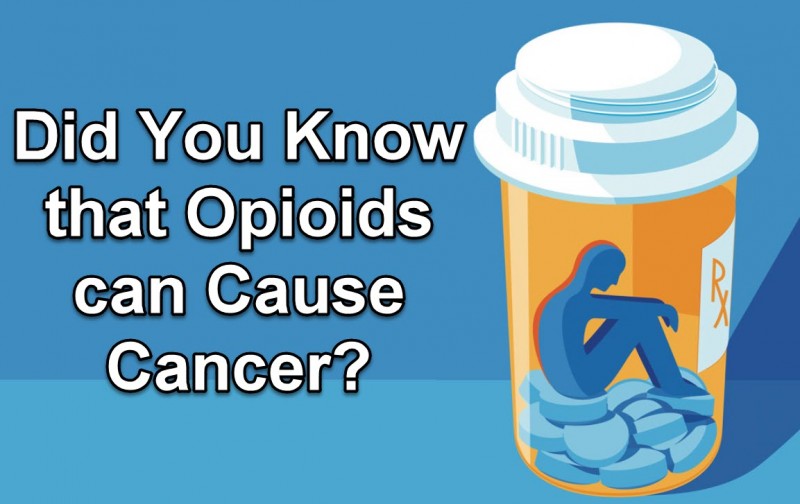Did You Know That Opioids Can Cause Cancer?

As if you needed another reason to ditch those opioids and switch to cannabis, here’s some news: opioid use has been linked to cancer growth.
Yes, the very same opioids that doctors are prescribing to millions of people a year, including those who are suffering from cancer already.
In December of 2017, medical experts gathered at Houston’s MD Anderson Medical Center to talk about ways of improving the quality of life for cancer patients. There was also a discussion on opioids.
Dr. Jonathan Moss was one of the experts present in the discussion; he presented findings revealing that lung cancer cells that have extra opioid receptors grow almost twice as fast as tumor cells that do not have extra opioid receptors. The same lung cancer cells were 20 times faster to spread to distant locations in the body.
A similar study conducted by researchers at the University of North Carolina assessed over 2,000 patients with breast cancer. They found that the women who had opioid receptor mutations which made opiates less effective for them, had a better chance of being alive 10 years following treatment.
“The results of this study provide support for the hypothesis that endogenous and/or exogenous opioids, acting via the mu opioid receptor, may influence cancer outcomes,” they write.
“There is no evidence that opioids cause cancer,” Dr. Moss disclosed to USA Today Network. “But there is animal and human evidence that commonly used opiates associated with tumor progression in certain tumors, including advanced prostate cancer.”
“These were patients with advanced cancer and a life expectancy of one to two months,” Moss said. “Yet several lived for another five or six months. It made us wonder whether this was just a consequence of better GI function, or could there possibly be an effect on the tumors.”
He adds that using drugs to block these opioid receptors “is associated with improved survival in patients with several different types of cancer.”
But there similar studies that are pointing to the same results.
If you aren’t scared of opioids yet, you should be.
“Epidemiologic findings suggest that the type of anesthesia we do for cancer surgery influences recurrence rate, and laboratory studies demonstrate that opioids influence tumor progression and metastasis," said Jonathan Moss, MD, PhD, professor of anesthesiology and critical care at the University of Chicago Medicine and co-author of the commentary, a summary of research on the topic. "These studies have caused anesthesiologists to re-evaluate how best to do anesthesia and pain control for cancer patients,” says a commentary found in the Journal Symposium 2012 issue.
This is certainly terrifying, since opioids are the first line of defense for chronic and postoperative cancer pain, for nearly 200 years now. Now there are studies that have been coming out since 2002 that suggest, opioids can actually work the opposite way: they have been found to stimulate the spread of cancer cells.
The medical journal discussed one study, led by Patrick Singleton, PhD, which clearly demonstrated how opioids that are already in the human body can actually make malignant human lung cancer cells worse, even when morphine hasn’t been added. Specifically, Singleton and his team discovered that different human lung cancer cells have 5 up to 10 times more opioid receptors compared to non-cancerous lung cells.
What’s worrisome is that they also found how human lung cancer cells that possess extra copies of opioid receptors grow doubly fast compared to tumor cells without the additional receptors. They were 20 times more prone to spreading to distant sites within the body.
Meanwhile, they found that medications designed to block opioid receptors, like methylnaltrexone or naloxone, decreased tumor growth. “Our findings suggest that the mu opioid receptor may be a therapeutic target.”
This should be more than enough reason for you to quit opioids, but thankfully, more of the public are waking up to this alarming reality.
A recent study in the Cannabis and Cannabinoid Research journal found that around half of MMJ patients have stopped medicating with benzodiazepines once replaced with cannabis. “We observed a significant number of patients who stopped taking their benzodiazepine medications once started on cannabis,” says lead researcher Chad Purcell.
There is also a looming risk for overdoses; the Center for Disease Control estimates that almost a quarter of opioid overdoses involve combining benzos with painkillers.
OPIOIDS AND CANNABIS, READ THESE..
OPIOIDS AND CANNABIS, CLICK HERE.







